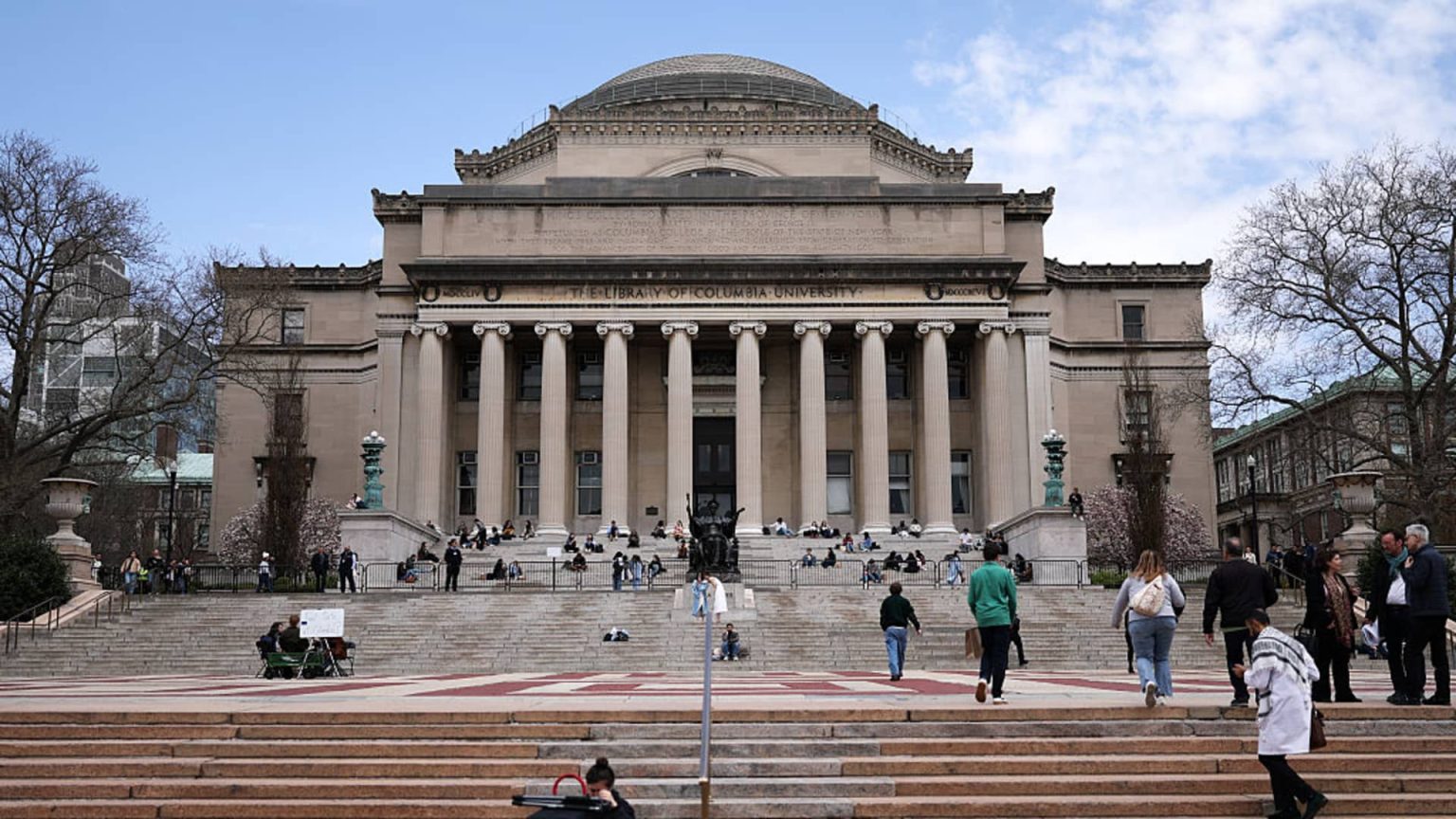Columbia University has recently come under scrutiny from the U.S. Education Department for allegedly failing to comply with accreditation standards due to violations of federal antidiscrimination laws. The report cites concerns regarding the university’s handling of harassment claims involving Jewish students. Education Secretary Linda McMahon emphasized the importance of compliance not only for academic integrity but also for the welfare of students enrolled at the institution. This serious matter raises significant questions about the university’s policies and practices moving forward.
| Article Subheadings |
|---|
| 1) Allegations Against Columbia University |
| 2) Federal Oversight and Compliance Standards |
| 3) Impact on Students and Accreditation |
| 4) Reactions from University Officials |
| 5) Future Implications for Higher Education |
Allegations Against Columbia University
The U.S. Education Department’s investigation into Columbia University began in early February, focusing on allegations of discrimination and harassment involving Jewish students and faculty. The inquiry centers on whether the university has been enabling a hostile environment contrary to Title VI of the Civil Rights Act. This legislation prohibits discrimination on the basis of race, color, or national origin among recipients of federal funding, which includes most colleges and universities across the nation. Underlining the gravity of the situation, Education Secretary Linda McMahon stated, “After Hamas’ October 7, 2023, terror attack on Israel, Columbia University’s leadership acted with deliberate indifference towards the harassment of Jewish students on its campus.” This caught the attention of federal authorities due to the implications such behavior has for federal funding and student safety.
Federal Oversight and Compliance Standards
The Office of Civil Rights (OCR) issued a formal notification to the Middle States Commission on Higher Education, the body responsible for accrediting Columbia, regarding the university’s alleged violations. According to federal regulations, accreditors are mandated to inform their member institutions about any federal noncompliance findings and to establish a corrective action plan. The Education Department clarified that if Columbia fails to remedy these issues within a specified timeframe, the accrediting agency could be required to take action against the university. Such actions could include suspension or revocation of its accreditation status, which would have dire consequences for its eligibility to receive federal student aid such as loans and Pell Grants.
Impact on Students and Accreditation
The ramifications of the Education Department’s findings extend far beyond bureaucratic procedures. For students, especially those of Jewish descent, the environment on campus could become increasingly intolerable if such allegations prove true. The university has a critical responsibility to safeguard the welfare of all its students and create an inclusive educational environment. The loss of accreditation would not only affect the university’s reputation but also compromise the educational pursuits of thousands of current and prospective students by limiting their financial aid options. This includes federal loans and grants that many students rely on to afford their education.
Reactions from University Officials
At this point, officials from Columbia University have yet to publicly comment on the accusations and the ensuing investigation. However, the press has sought responses from university representatives concerning the Education Department’s recent decision. Transparency will be crucial in this matter as students, faculty, and stakeholders look to understand how the administration plans to address these serious allegations. The impending actions taken, if any, will underscore the institution’s commitment to maintaining a fair environment for all students.
Future Implications for Higher Education
The situation at Columbia University serves as a critical test case for how higher education institutions handle allegations of discrimination and harassment. If the university fails to address these issues satisfactorily, it may set a precedent for stricter oversight and accountability measures within the entire educational system. Educational institutions could become increasingly aware of their obligations under Title VI and may need to revise their policies and practices to ensure compliance with federal antidiscrimination laws. This evolving landscape could lead to more rigorous scrutiny of universities’ handling of discrimination complaints, thereby ensuring the safety and wellbeing of all students.
| No. | Key Points |
|---|---|
| 1 | Columbia University is under investigation for potentially violating federal antidiscrimination laws against Jewish students. |
| 2 | If found noncompliant, Columbia could face severe repercussions, including the loss of accreditation. |
| 3 | Education Secretary Linda McMahon has criticized the university for its handling of harassment claims after a major terrorist attack. |
| 4 | The ongoing investigation raises significant concerns about student safety and institutional accountability. |
| 5 | This situation offers important lessons for other educational institutions regarding compliance with federal laws. |
Summary
The allegations against Columbia University mark a pivotal moment in the ongoing discourse about discrimination and harassment within academic institutions. The U.S. Education Department’s scrutiny signifies the critical importance of creating equitable and inclusive campus environments. As the case evolves, the implications for students, faculty, and the broader educational system could be profound, emphasizing the necessity for universities to uphold federal standards and ensure the protection of all students.
Frequently Asked Questions
Question: What triggered the investigation into Columbia University?
The investigation was initiated due to allegations of discrimination and harassment against Jewish students following tensions arising after Hamas’ October 7, 2023, attack on Israel.
Question: What are the potential consequences for Columbia if it fails to comply?
If Columbia does not rectify the alleged violations within a specified timeframe, it could lose its accreditation, impacting its eligibility for federal funding and student aid.
Question: How could this case affect other universities?
The case could serve as a precedent for stricter oversight and accountability within higher education institutions regarding compliance with antidiscrimination laws, potentially paving the way for more rigorous scrutiny of similar issues in the future.


